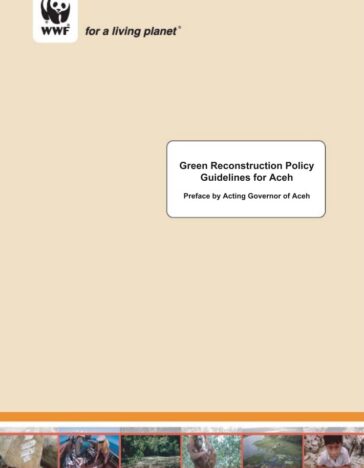
Green Reconstruction Guidelines Aceh
-
Coastal resilience
-
Coastal wetland conservation
WWF-Indonesia prepared Green Reconstruction Policy Guidelines. These are four sets of general cross-cutting policies, fundamental to successful implementation of any post-tsunami reconstruction activity.
Post-tsunami reconstruction efforts face the challenge of meeting immediate humanitarian needs whilst balancing longer-term development and natural disaster mitigation. Across the Indian Ocean, where the greatest loss of life occurred, literally tens of thousands of families are left without homes, boats or fishing gears. Healthy ecosystems underpin healthy and safe communities and durable prosperous economies.
Vulnerable individuals
Those impacted by the tsunami will be looking to healthy marine ecosystems as a source of livelihoods and food security, and as a potential first line of defence against future natural disasters. There is a strong connection between the well being of many of the most vulnerable individuals in the post tsunami recovery process (women, children and those dependent on subsistence activities) and a well-managed environment.
Operational principles
Therefore, it is important that the following principles are adopted as fundamental operational principles throughout the reconstruction process and across development activities in general:
- Sustainable development (socially acceptably, economically viable, and environmentally sound).
- Effective participation of local communities.
- Strengthened and decentralized natural resource governance.

